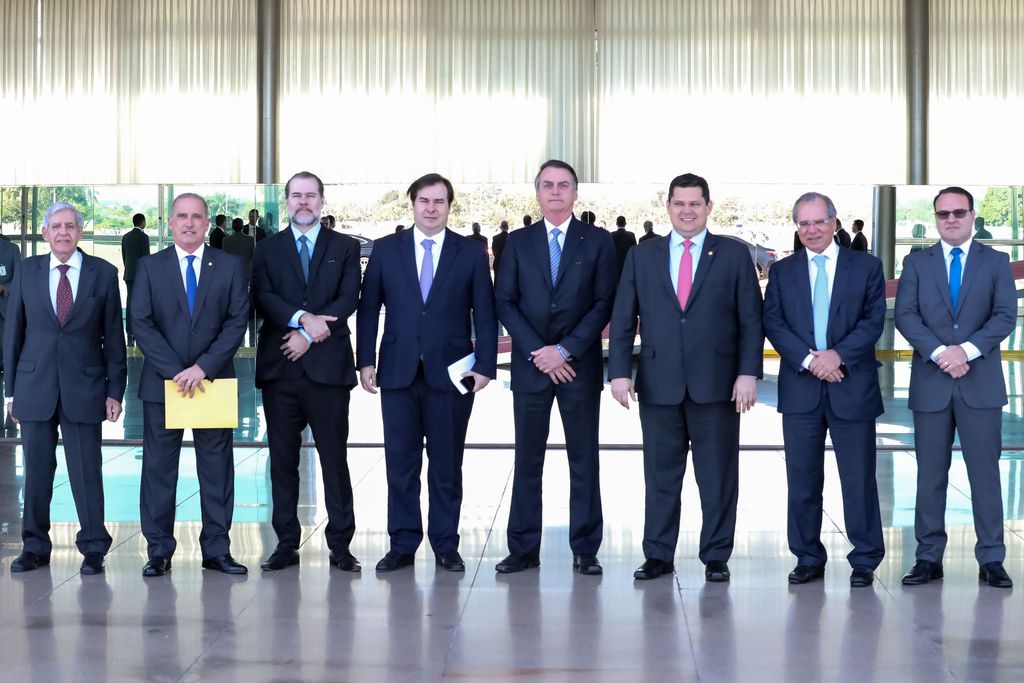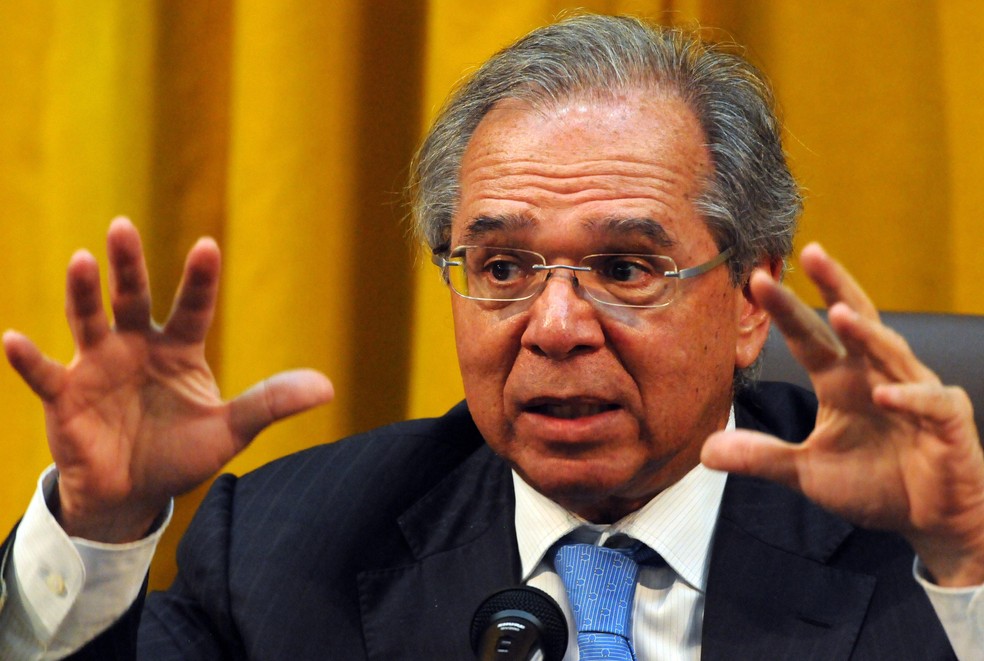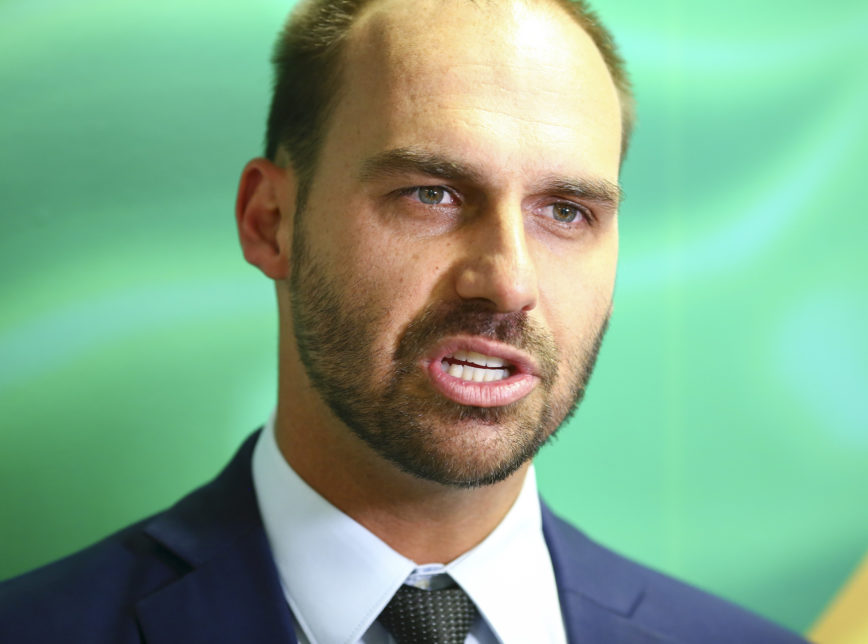RIO DE JANEIRO, BRAZIL – Jair Bolsonaro‘s repeated flirtations with authoritarian symbols have heightened the climate of distrust among the legislature and the judiciary, and have reinforced the view in both branches that the country’s stability and legal and institutional security increasingly rests on Congress and the Federal Supreme Court – and less on the Planalto Palace.

The immediate reaction of the Presiding Justice of the Supreme Court (STF) Dias Toffoli, and the Chamber of Deputies President Rodrigo Maia, to Minister Paulo Guedes’ speech on the AI-5 was almost educational, according to legislators and high court justices.
Folha de S.Paulo found that, more than strengthening the defense of democracy, Toffoli and Maia worked to set limits, stopping the escalation of the government’s authoritarian rhetoric: “The AI-5 is incompatible with democracy. The future is not built on failed experiences of the past,” said the Presiding Justice on Tuesday, November 26th, in Maceió.
The next day, on Wednesday, November 27th (27), in an event at the STJ (Superior Court of Justice), Toffoli said that “Federal Justice is one of the great guarantors of the democratic rule of law in Brazil.
“If today we have a strong democracy, this is largely due to the performance of the judiciary in recognizing and reaffirming people’s rights,” he said.
“It is never too much to remember that democracy must be vigorously upheld and reaffirmed by us all, as the great legacy of this country’s past and present generations. A legacy that allows no regressions.”
To Folha de S.Paulo, the vice-president of the Chamber, Marcos Pereira, said that “Congress, the judiciary and Brazilian society will never fail with democracy”. “There is no more room for authoritarian regimes in our country. Only those who have no memory could support something of this nature,” he said.
On Tuesday, Maia said that the repeated use of these threats by members of Bolsonaro’s government leads to insecurity over the government’s intentions.
“We have to be careful, because we are using an argument that does not make sense from the point of view of discourse, and, as it does not make sense, ends up leading to insecurity in us all, about the intentions behind the repeated use of this word,” said the president of the Chamber.
Guedes’ statement on Monday, November 25th, that no one should be surprised by the thought of someone asking for the AI-5 in the face of a potential radicalization of street protests in Brazil, was immediately perceived with a certain degree of disbelief by members of Congress.
The first reaction by many deputies and senators was to suspect the likelihood of Guedes having approved of the ukase enacted in 1968, in the harshest period of the military dictatorship (1964-1985).

Then, due to the accuracy of the statements, even legislators aligned with Bolsonaro’s agenda said that the Minister of Economy had overstepped what would be his main function, that of remaining silent by virtue of his position.
A deputy from the base of the government told Folha, in a tone of irony, that Guedes could not even choose whether his coffee would be served with or without sugar. His duty, he said, is to work for stability at all costs.
Although Bolsonaro did not comment officially on his minister’s statement but merely said that Guedes’ role is to take care of economic policy, the president expressed his displeasure in private conversations.
According to reports from his allies, Bolsonaro would have been upset to have to revisit the issue that sparked off a crisis less than a month ago, when his son Eduardo Bolsonaro said that if the left-wing were to radicalize in Brazil, as it did in the protests in Chile at the time, it would be necessary “to retaliate in a way that could be through a new AI-5”.
The account of Guedes’ speech having displeased the president was passed on to legislators and senators who were looking for deputies closest to Bolsonaro.
Vitor Hugo, the government’s leader in the Chamber of Deputies, told his peers in the Chamber that the Planalto had reacted very badly to the Minister of Economy’s statement.
One of Bolsonaro’s high-ranking officials told Folha anonymously that the incident with Eduardo had already unsettled the president. At the time, he said, in addition to publicly repudiating the speech, he would have reprimanded his son.
Even so, a wing of Congress did not buy the version that Guedes would be disconnected from the Planalto’s agenda. According to this group, the minister only made one of Bolsonaro’s wishes public.
For these congressmen, the government was trying to provoke demonstrations in the streets to, among other things, raise the bar in the use of violence and, consequently, generate an institutional crisis.
The argument was reinforced by the fact that a few days earlier, the president had sent a bill to Congress that would exempt military and police officers involved in GLO (Guarantee of Law and Order) operations from punishment in acts of legitimate defense.
For another group, Guedes would have clung to the AI-5 to justify his agenda’s defeats, such as the deferral of the administrative reform.

In this context, leaders of center parties joined the opposition to try to summon Guedes to provide clarification in the Chamber. However, the general assessment was that giving Guedes more rope to hang himself would only hurt the country and intensify the climate of political polarization.
One wing of Congress worked to calm things down, arguing that the minister’s statement was taken out of context and that he had retreated. On Tuesday, Guedes called for a “responsible democracy” in the country.
In the Chamber of Deputies, party leaders began to advocate that the reaction to the government’s repeated references to arbitrary measures should consist of the punishment of Eduardo in the Chamber’s Ethics Council. The collegiate body brought legal proceedings against the deputy on Tuesday.
Anti-democratic statements have been an almost constant agenda in the government. In an interview with journalist José Luiz Datena in March, the president himself stated that “there was no dictatorship in Brazil. And that, like any marriage, the regime had some “little problems”.
In this context, Bolsonaro has intensified the escalation against media outlets, including Folha.
In September, for instance, the president published a provisional measure that revoked the obligation to publish official notices of public bids in newspapers. Early this month, the measure was overturned by a congressional committee.
AI-5
Last Monday, November 25th, Minister Paulo Guedes said one cannot be alarmed by the prospect of someone asking for the return of the AI-5, the best-known decree of the dictatorship. In late October, Eduardo Bolsonaro had already said that a new AI-5 was a viable option in the face of eventual radicalization of the left-wing.
Bill
The president sent a proposal to Congress to exempt from punishment military and police involved in GLO (Guarantee of Law and Order) operations, in actions regarded as legitimate defense.
Press
The president intensified his attacks on the press, asking followers not to read nor to advertise in São Paulo daily newspaper Folha de S.Paulo, which has been critical of the president.
Source: Folhapress

